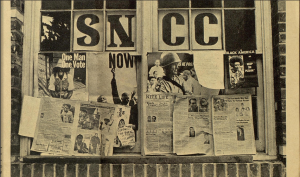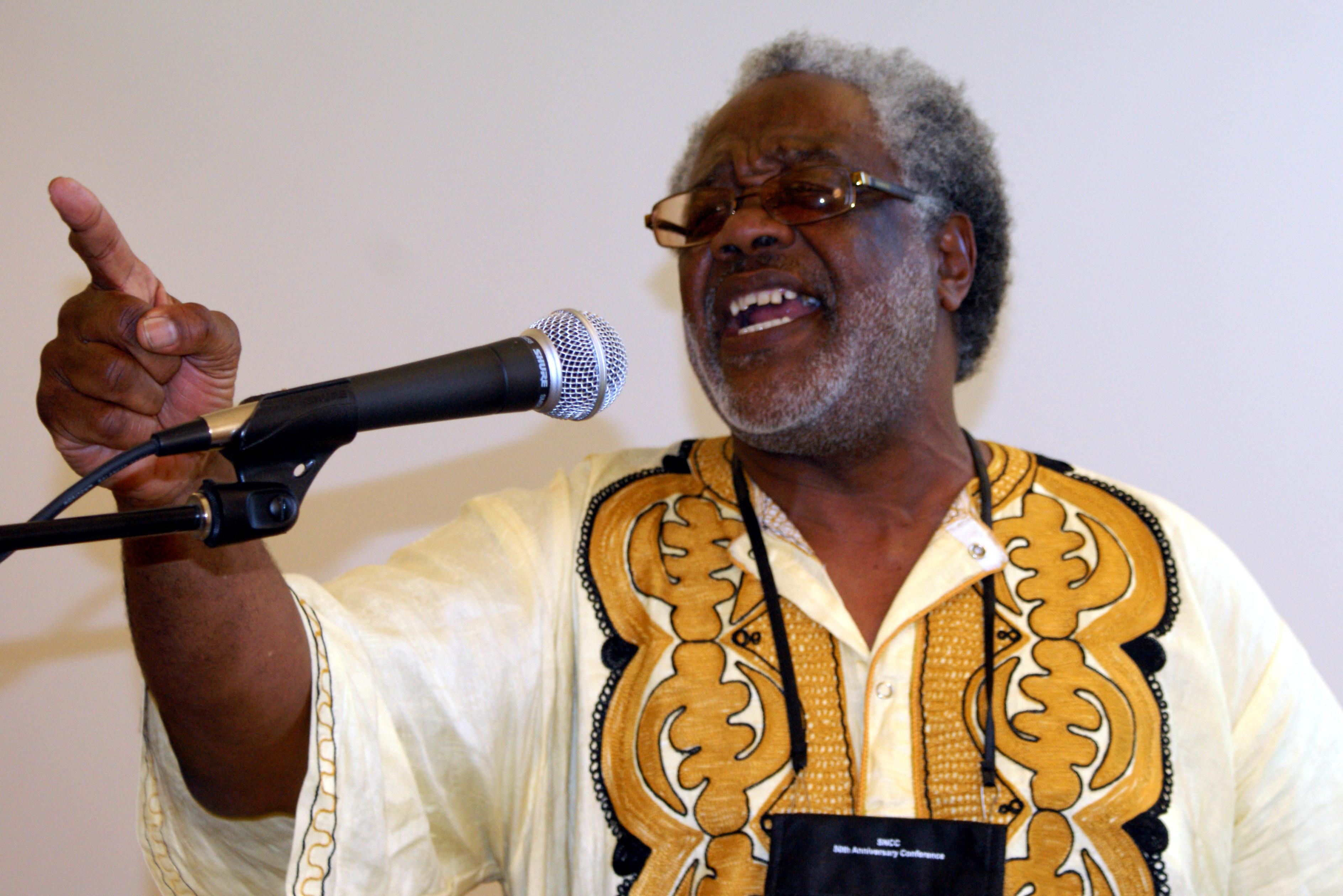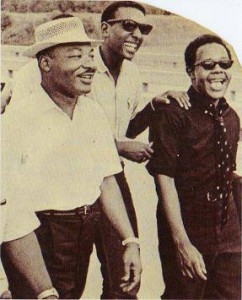Willie “Mukasa” Ricks lowers his microphone from his mouth and projects it to the crowd, “We ain’t no Americans… what are we?”
The crowd responds, “Africans!”
“That’s right,” says Rick— a much grayer man than the one appearing on photographs held by nearly all of the students and faculty present at Tuesday night’s meeting. (The photo shows Ricks, Stokely Carmichael and Martin Luther King, Jr. marching beside one another smiling. The photograph provided a level of credibility to his speech—seeing as it was proof of action.)
Tuesday night’s meeting in Covel Common’s Grand Horizon room was a part of Black Power Week—a UC wide movement initiated by Black student organizations. Fittingly, Ricks the keynote speaker, is known as the founder of the concept of Black Power.
Ricks began his life as an activist in high school when he joined the Student Nonviolent Coordinating Committee (SNCC) in 60s. SNCC was a civil rights group that held sit-ins, freedom rides, and marches to combat segregation and other forms of White racism in the south. During this time Ricks labored side by side with civil rights legends such as Dr. King, Stokely Carmichael and Ella Baker. It was during this time that Ricks coined the phrase “Black Power”—an abridged version of the phrase “Black power for Black people.” Eventually, Ricks distanced himself from SNCC because of his affiliation with the Black Panther Party where he adopted a more militant and separatist approach than was held by SNCC and other civil rights groups.
Ricks’ speech focused on the connection between Black Americans and Africans. For Ricks, the precondition for the progress of Black people as a whole strongly identifies with Africa. Ricks said, “The only way we can be free, is if Africa unites.” To Ricks, the designations use to distinguish Afro-Americans, Afro-Latinos, and Afro-Caribbeans are unnecessary and are ultimately oppressive denominators. “African Americans, South Americans, Haitians…we all the same,” he said as the crowd snapped their fingers in approval.
To Ricks, Blacks constitute an entirely separate nation dispersed throughout the world with one common enemy—European/American imperialist. Ricks argues that imperialism is the product of capitalism, which in itself is the result of slavery. “Our people were brought over here to work and make this nation rich, [but] all over the world [we’re] still poor,” said Ricks.

Front window of a SNCC field office in the South, picture taken from “The Story of Snick: From ‘Freedom High’ to ‘Black Power'” by Gene Roberts, New York Times Magazine, September 25, 1966
More controversially, Ricks declared with no reluctance, “An enemy to the United States is a friend of the African people.” He declared his solidarity with many figures commonly held to be villains by many people in America. His list of allies include Ugandan President Idi Amin, Libyan revolutionary Muammar Gaddafi, the political organization Viet Cong, and the Arab socialist Saddam Hussein. Rick even classified Fidel Castro as “The greatest man alive today.” To Ricks, these figures are painted as villains because they constitute a threat to American imperialism—which makes them friends to Ricks’ cause.
Ricks’ speech also focused on the importance of student activism for change. “Young people lead Martin King,” Ricks said as he scanned the room, “they started “Black Power”, they started the Black Panther Party,” he added. Ricks declined to embrace the celebrity like status often given to individuals of his status, he said, “Don’t compliment and praise me… I don’t believe you any way.” In his closing remarks he pointed to Kamilah Moore, Chairperson of the Afrikan Student Union, and said, “The most important thing is the effort you do. That is the most important.”


